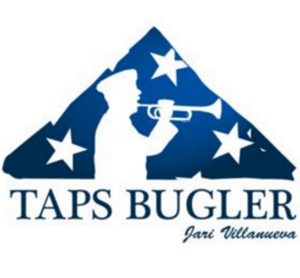DUTIES AND CHAIN OF COMMAND
Company Bugler
Reports to the Company Lieutenant or Captain. Sounds calls on company level. Will listen for calls from brigade or regimental level and interprets the call for the company commander. Must know the Skirmish Calls. Is responsible for orderly, guard and fatigue duty. Messes with company. Rank of private or corporal.
Regimental Bugler
Reports to the Colonel or adjutant of the Regiment. Sounds calls on the Regimental level and relays those calls to company level. Must know the Skirmish Calls. Must know how to form the Regiment by the bugle. Is responsible for company buglers. Messes with company. Rank of corporal or sergeant
Brigade Bugler
Reports to the general, colonel or adjutant of the Regiment. Accompanies the commander on the field, sounds calls on the brigade level and relays those calls to regimental level. Administrative position. Must know the Skirmish Calls, know how to form the brigade by the bugle. Is responsible for the training and deportment of all buglers in the brigade. When no drum major available must lead the massed musicians in dress parades or lead bugle corps. Messes with regimental staff. Rank of Chief Bugler or Principal Musician.
Corps Bugler
Reports to the general or adjutant of the Corps. Mostly administrative position responsible for all buglers in the Corps. Messes with regimental staff. Rank of Chief Bugler or Principal Musician
A Bugler will always be at Headquarters of each regimental commander. The Adjutant will detail buglers to attend at headquarters from whence all calls will be sounded.
IN CAMP
There are no times assigned to these calls as they could happen any time at the discretion of the commander/adjutant. Officers and NCOs must know their respective Prelude Call to avoid confusion. Prelude calls are signals that particular to a unit to identify calls following the prelude.
Assembly of the Buglers All Buglers report to Federal HQ for orders
Reveille Morning Roll Call
Stable Call Tend to the needs of the horses
Breakfast Rations cooked and eaten
Sick Call Sick and wounded report to surgeons
Fatigue Wood, water and other details
Orders for Orderly Sergeants Reports due at regimental HQ
Assembly of the Guard Guards and pickets assemble for duty
The Assembly To form on company street
To The Color To form on regimental color line
Officers Call Officers report to respective HQ
Retreat Afternoon Roll Call
Tattoo Evening Roll Call
Taps Extinguish lights
TO PREPARE TO MARCH
All calls are echoed by subordinate buglers and played by the Field Musics.
The signal to march a brigade is The General The Assembly and To The Color
1. Attention Heads Up call. Followed immediately by:
2 The Brigade Prelude Call Followed immediately by:
3. The General. This signals that the brigade should strike camp and prepare to move. The calls are echoed by regimental buglers sounding their prelude calls
After a proper interval (30-40 minutes) the following is sounded:
4. The Assembly is sounded to form the men by companies
5. To the Color to form the regiments which then march to the place designated for the brigade to form.
ON THE MARCH
On the command of the brigade commander, The Forward is sounded to begin the march. If there are fife and drums, they will strike up a cadence and “The Girl I Left Behind Me” and other martial tunes for a short distance after which the order will be given for the Route Step.
TO BRING TROOPS TO A HALT FOR REST
The bugler sounds Attention at which the fife and drums will begin the cadence, troops fall into into step bringing muskets to Shoulder Arms. Captains move up to the head of their companies. The bugler then sounds or echoes the command Halt. If the troops are to stack arms for an extended rest, the bugler will sound Fix Bayonets and the Disperse (or Lie Down) on the command of their respective regimental commander.
TO RESUME THE MARCH
The bugler will sound The Recall, Attention and The Assembly to form the troops. They will gather their arms and the bugler will sound Unfix Bayonets. To resume marching the bugler will, on the command of the brigade commander, sound The Forward.
As always, the calls are echoed by regimental buglers.
If there is imminent action, To The Color is sounded. This is an signal that troops should prepare for battle. The Long Roll on the drum is the alarm assembly to form battle line and load. If skirmishers are desired to be employed, Deploy As Skirmishers is sounded. The company that has been designated as skirmishers will deploy immediately at the direction of the field staff













Thank you for putting together the “School of the Bugler” portion, as a new bugler it’s invaluable.
It was put together as a guide for re-enactors since there was no “bugle manual” of the time.
It uses material from the School of The Soldier” but adapted for buglers.
thanks
I am curious about the “School of the Bugler.” Is it from Hardee, or did you compose it?
In either event, it is most useful.
Seeing as the confederate army was modeled exactly the same way as the union army, regulations are the same.
They use the same calls for EVERYTHING.
You must remember most if not almost all officers in the Confederate Army resigned from the Union army to join the confederates.
Hi Great article and quite informitive. Do these regulations apply for the Confederates as well as the Union? Are the calls mostly the same? The type of Buge? The Uniform? Do you know if there is a list and music of Confederate calls?
Thanks!